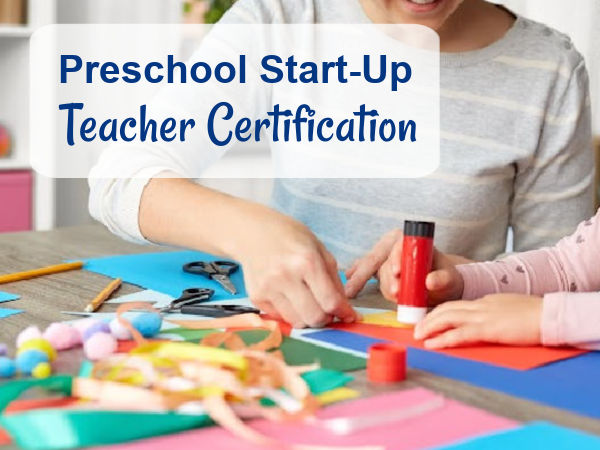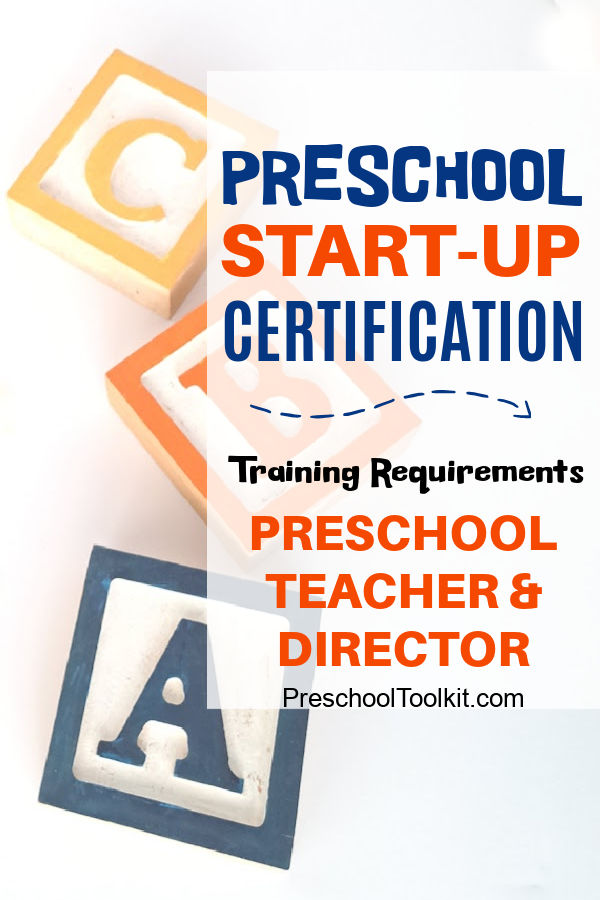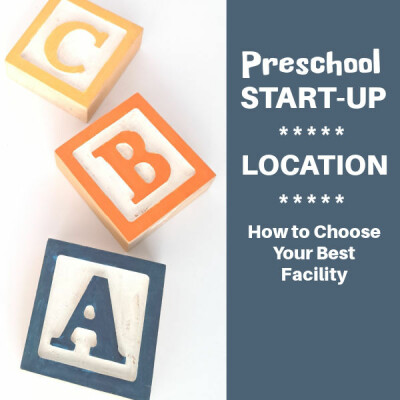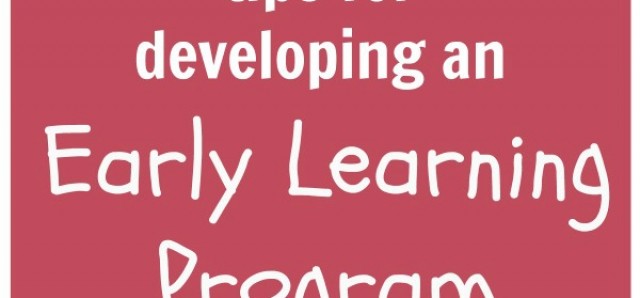Preschool Startup Teacher Certification Requirements
This article provides information about the credentials required to become an early childhood educator. Learn more here about achieving the training in Early Childhood Development that makes this important career choice a reality.

Privacy and Disclosure for information on cookies and affiliates
At the core of any career is the underlying training required to enter the chosen field.
This is no less true for persons who wish to gain employment as teachers and staff in the field of Early Childhood Education, as well as entrepreneurs who look forward to starting their own preschool facility.
There are diverse training options for Early Childhood Development teacher certification. Community colleges, universities and other institutions offer degrees and diplomas in early childhood education, often with both full time and part time enrollment options.
There are also business courses that prospective managers and self-employed persons can pursue in conjunction with studies in ECE.
This article offers some insight into studies required to obtain certification in the Early Childhood field, and how course completion determines the different roles of preschool teacher, director of an early center, and a self-employed facility owner/teacher.
Early Childhood Teacher Certification
I'm happy to welcome you to this discussion of the credentials required for a career in early childhood.
In order to qualify for this important occupation, a certain level of training must be achieved.
The training you pursue may be based on factors such as course recommendations, or the location of an institution that offers courses in Early Childhood Education. Your choice of institution may also be determined by the curriculum that provides the level of expertise you hope to achieve. For example:
- A director of a child care center may require a different level of certification than a preschool classroom teacher.
- An applicant for the managerial position at the local day care may need business training to be eligible.
- A self-employed facility owner will benefit from business training to ensure a successful preschool start-up.
This article provides some insight into the types of courses that can be expected in a study program, and the different roles of teaching staff, directors, and facility owners in licensed child care centers.
1. Course Content

Your studies will cover a variety of topics, ranging from understanding childhood development to learning effective transition strategies in the classroom. You might read about daily care provisions such as Nutrition and Behavior Management, then turn your attention to childhood development topics such as Neurodiversity, or how to manage classroom experiences with Best Teaching Practices.
Here is a course outline, along with the admission requirements to attain an Early Childhood Diploma at a school in my province. This information gives you an idea of the topics included in early childhood teacher training.
Pioneers in the early childhood education field such as Montessori and Reggio Emilia have influenced early teacher training. An ECE curriculum may include these theories and others, with courses on early childhood development as well as best practices for the classroom.
Courses and seminars may be formal (a classroom lecture or presentation for example) or informal (a round table discussion with classmates), online, or in person. Testing may be written, interactive, or verbal.
An early education teacher training curriculum may include classroom work as well as internship or practicum (see more about Practicum in the next section) in a full-day child care facility and/or a part-day preschool program.
Part of an Early Childhood Education curriculum addresses management of a facility. This is helpful if you hope to gain a director position in a child care center, or open your own facility.
Related: How to Choose a Location for Your Preschool Startup
A diploma or certificate will designate your level of achievement upon completion of your course of study. University degrees may offer more advanced studies in the field than a diploma from a community college for example. As well, extended business courses will benefit the director or self-employed entrepreneur.
Requirements for a job position may vary from one child care facility to another. For example, a director may handle office duties part of the day and spend the remaining time with a class of preschoolers. Understanding the roles of staff members, and their training levels, will help you decide on your own education journey.
2. Practicum

Working at a number of different facilities is a valuable part of the training program. This extension provides first-hand experience as well as insight into classroom setups and teaching styles.
- You’ll discover that the needs and skills of kids enrolled in a program will vary within the same age group, and you’ll gain an appreciation for the role of the preschool teacher in providing quality care to a diverse group of early learners.
- You’ll understand that environments vary depending on the early learning curriculum each center follows as well as the method of delivering the program. One center may provide more outdoor play time, another might include more small group activities or music and movement, and still another may schedule more independent (free play) time.
Related: Guide to Developing a Preschool Program
3. Self-employment
The part of your training that addresses business management is valuable not only to someone preparing for a role of manager or director, but to self-employed persons as well.
Along with the daily supervision of staff and students, you will be responsible for tasks such as cleaning, purchasing, and bookkeeping. As an owner, you may assume some of these tasks yourself, or delegate to others inside (depending on available staff) or outside the facility.
If you will be the sole teacher as well as owner, network with others in this type of preschool environment to gain helpful insight into this dual role. Established self-employed preschool owners/teachers will have valuable information to share about the certification opportunities, their initial setups, and their program planning.
Reaching out to others can be helpful for asking questions, sharing concerns, gaining insights, and forging friendships. It's a good first step to pursuing your own goal of entrepreneurship.
4. Continuing Education

Some licenses require training upgrades on a regular basis, perhaps annually. You'll find that this is a welcome opportunity to stay on top of your field. There is always something new to learn such as:
- a different approach to parent/teacher communications
- a new regulation that requires an upgrade in your facility
- a recommended training module to assist with special needs programming
Learning can be achieved through professional upgrades as well as networking. Both these types of interactions provide friendship and support, while ensuring early childhood educators stay informed of current, quality teaching practices.
>Professional Development
Trainings are available to early childhood educators in the form of conferences and workshops, online or in-person. These courses help staff stay on top of current best practices and learn new skills. They can include trainings in first aid, nutrition, and programming.
Some sessions may be required to maintain individual accreditation, or to renew a facility license. Depending on the facility, these trainings may not be an expense for staff.
>Networking
Education platforms, required or voluntary, also lead to networking, a valuable component in the early education system. Connections can be made and maintained through various means: in-person seminars and workshops; virtual courses and social media groups; printed publications, pod casts, and news releases.
Networking can also benefit the business side of your career. There are lots of ways to get acquainted with your community, both professionally and personally.
- Join a local organization of small business owners.
- Volunteer at community events.
- Engage the local elementary school with a shared reading program for your students.
Education is a lifelong process. The effort you make to stay abreast of current practices and important issues, both as a teacher and as an entrepreneur, will give you a strong foundation from which to establish your business and advance your career.
Understand your limits and reach out to the early childhood community and licensing officers for assistance when needed. They can offer advice on everything from policy and behavior management, to parent/teacher meetings and menu ideas.
5. Conclusion
This discussion is shared to provide you with some insight into the training required to be certified as an early childhood educator. An Early Childhood Development course of study is designed to provide you with the tools needed for facility management, and best practice in the classroom.
Certification is the starting point for your career in early childhood, whether you aspire to work as a teacher in a preschool classroom, attain the position of director at a day care, or start up your own early learning program.
I hope your journey into obtaining certification as an early years' teacher is enjoyable and fulfilling!

Preschool Startup: Choosing a Location



